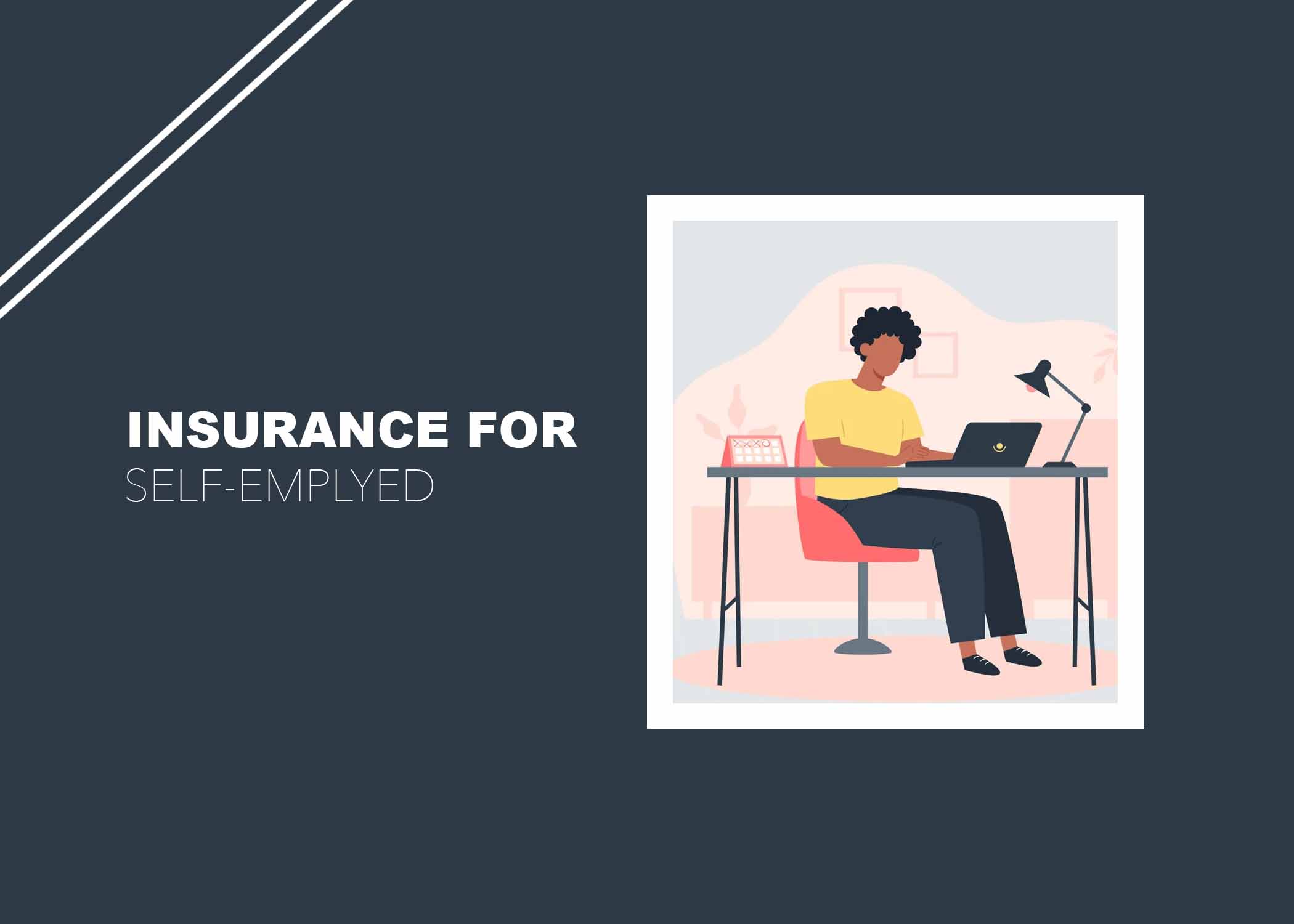If you work for yourself, it’s important to be ready for surprises that could affect your finances. This helps ensure that your business stays strong even if something unexpected occurs. That is why it is always a necessity to have self-employed insurance coverage.
Being self-employed has its perks! You get to choose your own work hours and team members, which is pretty awesome.
That’s why there are about 15 million self-employed people in the US right now, and that number might almost triple in the next two years. But even though you have control over many things in your business, there are still some things you can’t control or predict.

No entrepreneur wants to see their business suffer because of unexpected expenses, like legal fees from accidents or disputes.
What Does it Means to be Self-employed?
Being self-employed means that you work for yourself rather than being employed by someone else or a company. It’s a form of entrepreneurship where you are in charge of your own business, operations, and finances.
Being self-employed offers both challenges and rewards. It requires self-motivation, discipline, resilience, and a willingness to take risks. However, for many individuals, the freedom, flexibility, and autonomy of self-employment are invaluable, allowing them to pursue their passions, achieve their goals, and create fulfilling careers on their own terms.
Why Insurance Matters for the Self-Employed
When you’re self-employed, you don’t have the safety net of employer-provided benefits like health insurance, disability coverage, or retirement plans. This means that you’re responsible for securing your own insurance coverage to protect against unexpected events, illness, or accidents that could impact your ability to work and earn income.
Read Also: How to Get Car Insurance – Why Do You Need Car Insurance?
Types of Important Insurance for the Self-employed
Choosing the right insurance for your self-employed business can be tricky. That’s why we’ve created a simple guide outlining the five most important types of insurance you might need.
General Liability insurance
General Liability insurance is usually the first type of insurance that self-employed business owners get. It’s like a safety net for your business. This insurance helps when your business is responsible for an accident that hurts someone or damages something that doesn’t belong to you.
It’s often required before you can start certain jobs or get hired if you need proof of insurance.
Commercial auto insurance
Commercial auto insurance is important if you use your vehicle for work-related tasks like meeting clients, delivering goods, or any other work-related driving. It helps pay for expenses if you’re in an accident while working. Just like personal auto insurance, commercial auto insurance covers injuries or damages from accidents that happen while you’re working.
Term Life Insurance
Term Life Insurance is important if your family depends on you and the money you earn from your business. If something happens to you suddenly, you want to make sure your loved ones are financially secure. It’s not a pleasant thing to think about, but you don’t want your family to worry about paying bills or expenses after you’re gone. Life insurance helps provide financial support for them during such tough times.
Health Insurance
Health Insurance is a Must: It’s not something you can skip. If you don’t have health insurance, you could face a penalty from the government. But more importantly, you’re leaving yourself and your family vulnerable to big expenses if a medical emergency happens.
If you’re used to getting health insurance through your job, get ready for higher prices. Since you’re self-employed, you’ll be covering the full cost of health insurance without any help from an employer.
Errors and Omissions Insurance
Errors and Omissions insurance is a shield against angry customers who take small problems to court. If someone accuses you of making a mistake or being careless, this insurance helps pay for legal expenses or fixing the issue. In some fields, it’s called professional liability insurance.
Commercial Property
Commercial Property insurance is like a safety net for your business belongings. It covers your equipment, furniture, inventory, and even the building if you own it. If something bad happens, like a burst pipe, fire, or vandalism, this insurance helps pay to replace or fix your stuff.
Workers’ Compensation Insurance
Workers’ Compensation insurance isn’t just for businesses with employees. Even if you work for yourself and have no employees, it can still help cover your medical bills and lost wages if you’re injured on the job. Just ensure you include coverage for the business owner in your policy. It’s usually required by states when you hire your first employee, so make sure you know the rules where you work.
Checkout: How to Buy Life Insurance – How Does Life Insurance Work?
Tips for Finding Insurance that Fits your budget if you’re self-employed.
Here are some simple tips to help you find insurance that fits your budget if you’re self-employed:
Compare Policies: Like with your personal insurance, reviewing your business policies regularly can save you money. Get quotes at least once a year, and make sure you’re comparing similar coverage and costs.
Ask for Recommendations: Talk to friends, family, and other business owners for advice on which insurance companies they trust. Also, check online reviews to see what others are saying.
Check with Groups: If you’re part of a business group or Chamber of Commerce, they might have partnerships with insurers that offer discounts to local businesses.
Do Your Research: While cheap insurance might seem attractive, it’s not worth it if the company doesn’t provide good service or struggles to pay claims. Research any insurer you’re considering making sure they’re reliable and have positive reviews for customer service.



